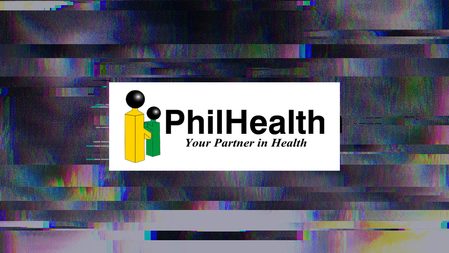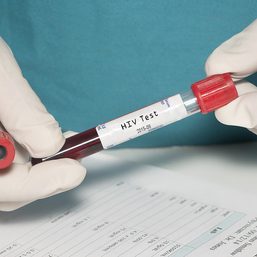SUMMARY
This is AI generated summarization, which may have errors. For context, always refer to the full article.
![[OPINION] We should own our health](https://www.rappler.com/tachyon/2024/06/thought-leaders-we-should-own-our-health.jpg)
For patients in the Philippines, accessing their own records is a struggle.
Presently, our country’s health record management adheres to a provider-centric model, wherein healthcare facilities and professionals typically store patient data in paper records. In this model, patients can only access their records upon request, only getting hold of photocopies containing a mere fraction of the picture of their health.
As a result, patients are confronted with multiple challenges in a single visit, experiencing long wait times, slow turnaround periods, and constant intra- and inter-hospital transfers. In most instances, they even have to pay a fee to get a copy of their own records.
Despite the patient’s right to information, the current system restricts their access to their own data.
This traditional system is borne of the dominant view that the provider of the care – not the recipient – owns medical information. This piece attempts to challenge this very notion by arguing that it is high time we reclaim our data.
We, as patients, should own our health.
Who really owns your data?
At present, the debate over patient data ownership remains unsettled.
In 2009, Hall and Schulmann articulated this debate by asking, “Who owns medical information? The one who gives care, receives care, or pays for care? All of the above? None of the above?”
As providers of care and collectors of data, healthcare institutions tend to view patient data as their property. This explains the reluctance of healthcare providers to share data with other parties – even with the patients who were the source of these data.
This disinclination is elicited for many reasons, among which are the fear of being “corrected” by another provider or losing a patient.
Over the years, however, patients’ clamor to own their data has grown steadily, especially in light of the emergence of big data in health care, which has presented challenges to the security and control of patients’ personal data. This initiated a shift in the perception of healthcare institutions from data owners to mere data ‘custodians’.
We welcome this view, as we firmly believe that patients should own their data.
As data owners, patients can have a bigger and clearer picture of their health, thereby informing their medical decisions and health management. This will significantly benefit patients with chronic illness, allowing them to track their diseases alongside their physicians, potentially seeking early interventions in times of need.
Furthermore, this signifies a massive step towards patient empowerment. Patients will no longer be confined to one or a few facilities for convenience. Instead, they will have greater freedom to choose who to seek care from.
Your data at your fingertips
Imagine if you could store all your health data in one object that can easily fit into your pocket.
In 2004, Taiwan explored a similar question, launching the National Health Insurance (NHI) smart card project. The project replaced paper cards with one health smart card intended to keep track of all the patient’s health information.
The NHI smart card condensed varied medical information, making tracking more manageable for the patient. It benefits both the patient and provider alike by streamlining previously time-consuming and expensive processes, shortening consultation waiting time, and lowering administrative costs. Furthermore, the NHI smart card played a pivotal role in Taiwan’s management of the pandemic, allowing them to determine high-risk patients by tracing real-time travel and arrival history.
This elicited the idea of implementing a similar project in the Philippine context.
With scalability, ease of use, and cost-effectiveness as primary considerations, the Ateneo School of Government developed a health smart card prototype – an integrative tool unique to each Filipino that carries their lifetime medical record. The idea was to use ID cards embedded with a unique QR code for easy identification, which upon scanning and verification, provides the healthcare provider access to the patient’s health information.
Garnering insights from healthcare providers and patients during several sets of consultations, the prospects of the project appear promising. Nevertheless, several considerations remain that need to be tackled – not least of which involve interoperability, scalability, and funding – before this can truly materialize.
Dangers of digitalizing a nation
It would be ill practice on our part if we were to discount the dangers of digitalization.
A critical factor to account for in any information systems implementation is resistance to change. The digitalization of health ushers in anxieties over an increasingly surveilled world.
With the government’s mishandling of electronic data and track record of profiling, it is reasonable for the public to worry that the resultant electronic health database may be used for the wrong reasons. The public at large should take issue with the manner by which government agencies safeguard data from being hacked.
Furthermore, digitalization may also intensify existing asymmetries.
Despite our prototype’s offline feature, we recognize that hasty implementation of the project without considering the existing digital divide will further isolate those without access to smartphones and digital literacy, who are likely the same underserved population facing the brunt of health inequities.
We recognize these concerns to be real and valid. We have taken measures to address these and are open to strengthening interventions. The importance of ensuring security and inclusivity cannot be overstated.
At the end of the day, genuine development entails that no Filipino is left behind. – Rappler.com
Kenneth Y. Hartigan-Go is the Senior Research Fellow for Health Governance at the Ateneo Policy Center, School of Government, at the Ateneo de Manila University.
Melissa Louise M. Prieto is the Research Assistant and Program Coordinator for Health Governance at the Ateneo Policy Center, School of Government, at the Ateneo de Manila University.
Angel Faye G. Castillo is the Program Manager for Health Governance at the Ateneo Policy Center, School of Government, at the Ateneo de Manila University.
This piece draws from the study titled “Towards integrated and quality-assured health service delivery: Creating a prototype of health smart card in the Philippines”. The study and other working papers may be accessed here: https://www.ateneo.edu/asog/ateneo-policy-center/research-materials/working-papers
The views expressed herein are those of the authors and do not necessarily reflect the views of Ateneo de Manila University.
Add a comment
How does this make you feel?



![[OPINION] A big defeat for Big Tech](https://www.rappler.com/tachyon/2024/03/big-defeat-big-tech-march-27-2024.jpg?resize=257%2C257&crop=425px%2C0px%2C1080px%2C1080px)

There are no comments yet. Add your comment to start the conversation.